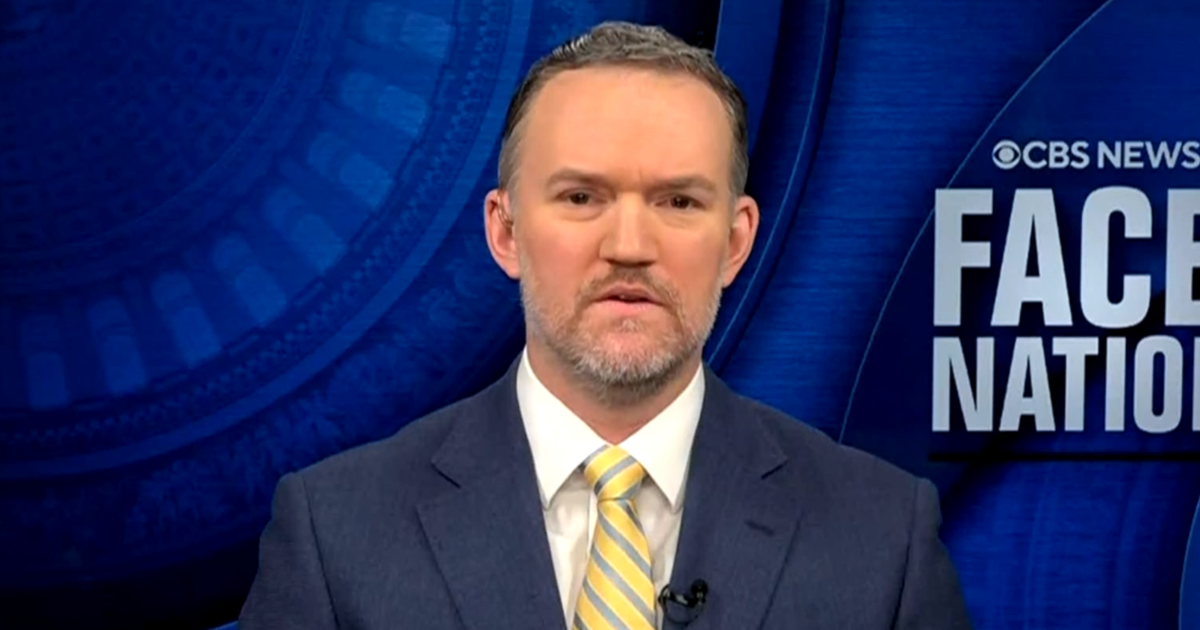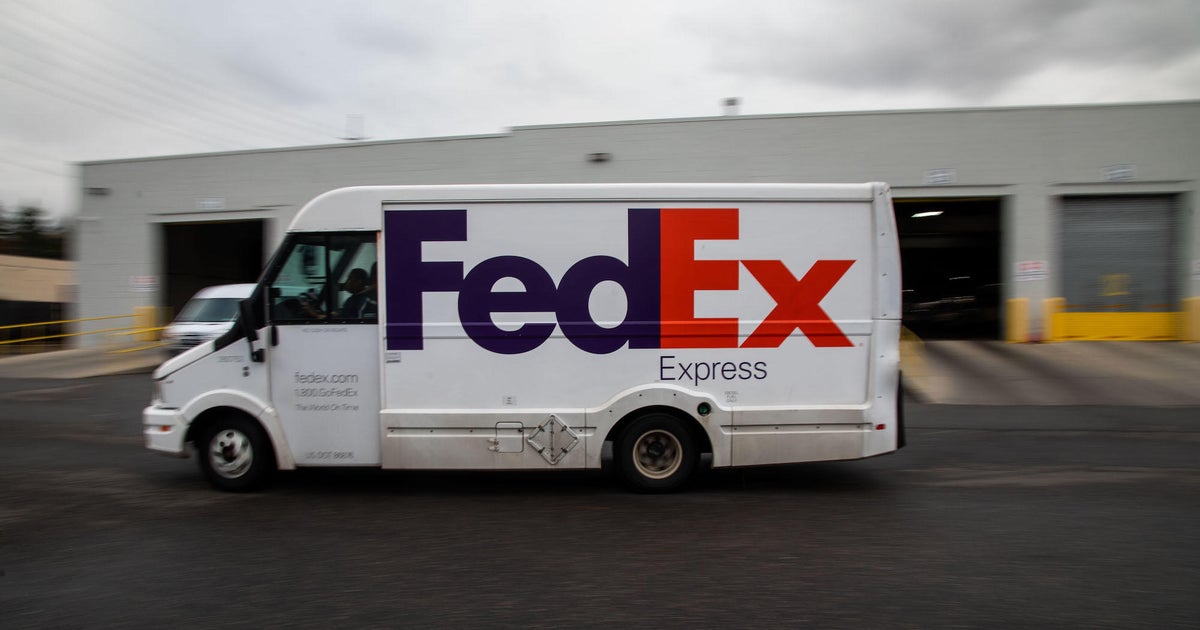Transcript: White House economic adviser Larry Kudlow on "Face the Nation," May 20, 2018
On Saturday, China said it would increase purchases of American goods and services and take steps to reduce the trade deficit, but it did not commit to a specific dollar amount. The move comes after trade negotiations between the two countries this week.
As director of the National Economic Council, Larry Kudlow is President Trump's top economic adviser. He joined us to discuss trade negotiations with China, the status of promised tariffs and Americans' views of the economy.
The following is a transcript of the interview with Kudlow that aired Sunday, May 20, 2018, on "Face the Nation."
MARGARET BRENNAN: We turn now to Larry Kudlow. As the director of the National Economic Council he is the president's top economic adviser. Larry, it's good to have you on the show.
LARRY KUDLOW: Wonderful, Margaret. Thank you.
BRENNAN: Have we avoided a trade war or is the threat of tariffs still on the table?
KUDLOW: You know I think we've made a lot of progress and perhaps even more progress than we might have thought when we went to Beijing a couple of weeks ago. And the communique makes that very clear that we're going to substantially reduce the U.S. trade gap. I mean here's the deal. We want China to open up markets, lower tariffs, lower nontariff barriers, give us a chance. We also want China however to change their behavior with respect to technology transfers and also the theft of intellectual property rights. Now are we going to get everything? I don't know, but I will say this we're making terrific progress and I think the meetings here in Washington were very positive. And the president himself has become very optimistic and supportive.
BRENNAN: But did he take that threat of 150 billion dollars in tariffs off the table?
KUDLOW: Well look, I don't think we're at that stage yet. There's a lot of numbers being thrown around 200 billion this is- we're not at that detail point.
BRENNAN: Well that's what the trade deficit you're talking about-
KUDLOW: Yes.
BRENNAN: -with the 200 billion.
KUDLOW: And look we want-- the president insist that we lower the trade deficit. But again, the details will be down the road- remember these things are not so precise. I mean macroeconomics plays a big role. But our view is China must open up. They must become fair traders. They have not been. The rest of the world knows they have not been and China has got to stop the theft of intellectual property and the forced transfer of technology. Those are our family jewels and we can make deals on this I believe we can make arrangements that has not yet been completed. But the early going- I mean tons of energy coming, tons of agriculture, tons more manufacturing. That's all in this communique.
BRENNAN: Well let's talk about the communique because the language in there says China has agreed to significantly increase its purchases of U.S. goods.
KUDLOW: Yes.
BRENNAN: How much and what are they buying?
KUDLOW: We'll see.
BRENNAN: So no specific agreement yet?
KUDLOW: What you're getting here is- the negotiations are proceeding very well. We're on the same page, too early for exact precise details. Maybe I got ahead of the curve but the number 200 billion deficit reduction, which is something that President likes, has been around by all the people on both sides. But it's too soon to lock that in. I just think the direction here is the key. And I just want to add, if we can get success here. If China opens up, if we move to a much more balanced fair trading- this is going to be terrific for the American economy. We are the most competitive economy in the world right now after the tax reduction after the regulatory rollbacks--
BRENNAN: but the risk of still putting--
KUDLOW: --money pouring in. This will be terrific for us
BRENNAN: tariffs on that could hurt agricultural exports for this country?
KUDLOW: I beg your pardon?
BRENNAN: The risk of putting tariffs on that could hurt agricultural exports have risk of putting tariffs on that could hurt agricultural exports for this country. Is that still something American farmers need to worry about?
KUDLOW: Look, they need to keep an eye on all of that. Absolutely. But let me just say this. Tariffs are part of any negotiation and tariffs may have to be part of any enforcement. You cannot do this kinds of major change without using everything that's in your quiver and I think the president has made that very clear. It would be better to go ahead- market openings. Let American companies own their companies in China, so we don't have to hand over our technology advances. Let them stop the theft. But if we can drive-- we're going in the right direction here. And I think that's the absolute key point and again why do you do this? You know you do this to grow our economy better. You do this to help a lot of the different sectors by the by. My view is China will be helped if we- if we pull this off.
BRENNAN: And you've always been a growth guy Larry. I've known you a very long time here but our CBS News Nation Tracker poll gives some credit to the president for some of the things you've been talking about in terms of growing the economy. More than two thirds of those we asked say his policies are somewhat or responsible for the economy, but nearly eighty eight percent say the president is mainly looking out for the interests of big business and the wealthy. Less than half say he's looking out for the middle class. That's the opposite of what he campaigned on.
KUDLOW: I just don't- I don't know where that comes from because it is the opposite. And I might add, that- that kind of rhetoric and partisanship is not part of our plan. Let- let me- let me raise one point.
BRENNAN: But it could become a political issue going into November. The president has campaigned on this promise of the forgotten man and women. If there is a perception that he's only helping out business-
KUDLOW: middle-
BRENNAN: -that hurts.
KUDLOW: -middle income, working folks are already benefiting. Wages are rising, jobs are rising. Confidence is rising everywhere you look. You know I've argued a million times if you lower business taxes for large and small businesses it is precisely the middle income wage earner who will benefit the most. I think there's a lot of false rhetoric out there. I've seen surveys though. I mean I don't want to live and die in polls. But a lot of these things- Trump is getting very high marks on economic growth. We've gotten through the three percent threshold that many of her critics said we couldn't do. Federal Reserve Bank of Atlanta says it could be four percent in the second quarter. I'd be happy with three, but I'm just saying all that side is working very, very well and look the middle income people the tax bill don't forget we doubled the standard deduction, we improved the child tax credits and so forth. These are all designed to help middle class folks. But I-I don't- I happen to like successful people. I'm perfectly happy to use the JFK-Ronald Reagan idea that a rising tide lifts all boats-
BRENNAN: You're still a trickle down guy.
KUDLOW: I don't- it's not trickle down, Margaret. It's incentives. It's don't punish success, reward success. You've heard me say this for about 25 something years. And you know what, alls I'm saying is, right now we're a year-year and a half into it. It looks like we're working or it's working.
BRENNAN: Larry, good to talk to you. And we'll be back in a moment with a look at a history making alliance between the Americans and the British.



